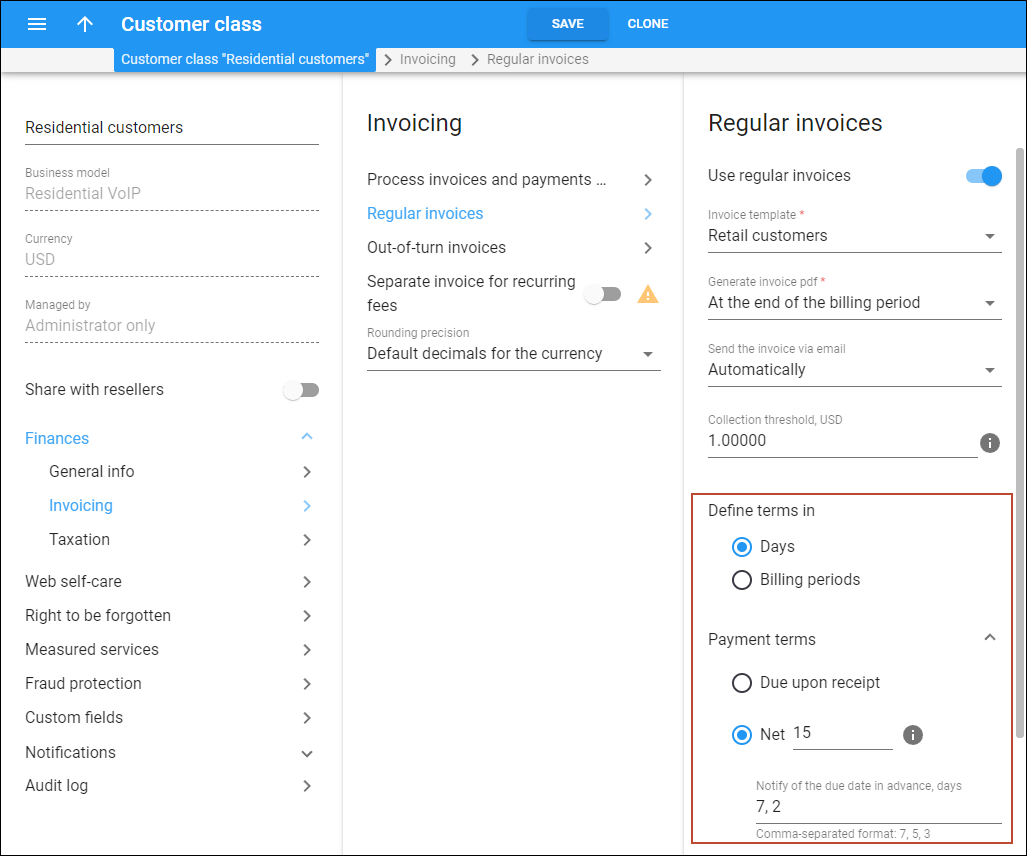Payment terms are configured on the customer class level and define the time frame within which a customer is expected to make payment. This time frame can be defined in days or billing periods.
You can choose when invoices become due:
- Due upon receipt – invoices become due upon generation. In this case, the invoice generation and due dates are the same.
- Net X – you can give your customer a specific number of days (or billing periods) to pay their invoice before an invoice becomes overdue. The invoice due date is calculated as the invoice generation date plus the period specified in the Net field.
If you have configured “Net 15 days” in the customer class, it means that when an invoice is generated on, let’s say, June 1st, the due date for that invoice would be within 15 days after its generation, on June 16th. Payment must be made by the end of June 16th. If the payment is not received by June 17th, the invoice becomes overdue, and the collection process will be initiated. If the customer does not make a payment promptly, their services will be suspended.

Notifications regarding payment due
It may happen that a customer has lost or overlooked the original invoice, so you can configure sending notifications to a customer several times before the invoice due date, stating that the payment is due soon. You can configure a set of days in the Notify of the due date in advance, days field, e.g., if you specify “10,7,1,” this means that PortaBilling will send notifications 10 days, 7 days, and 1 day prior to the invoice due date.


